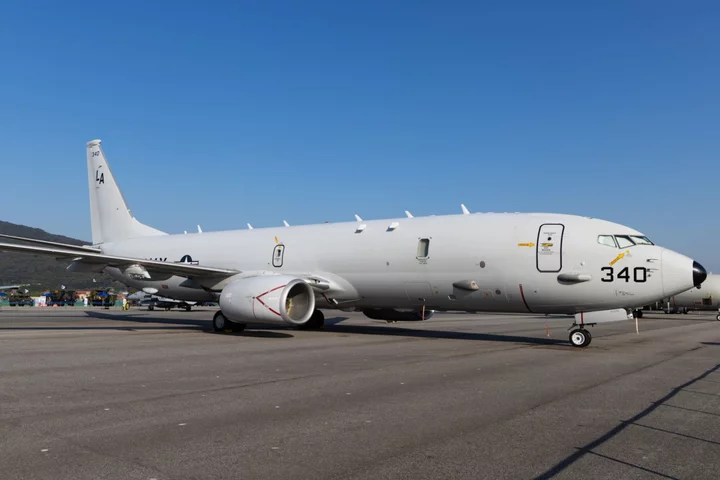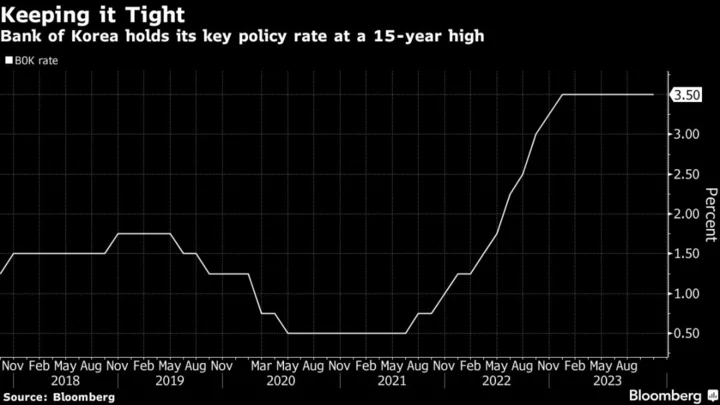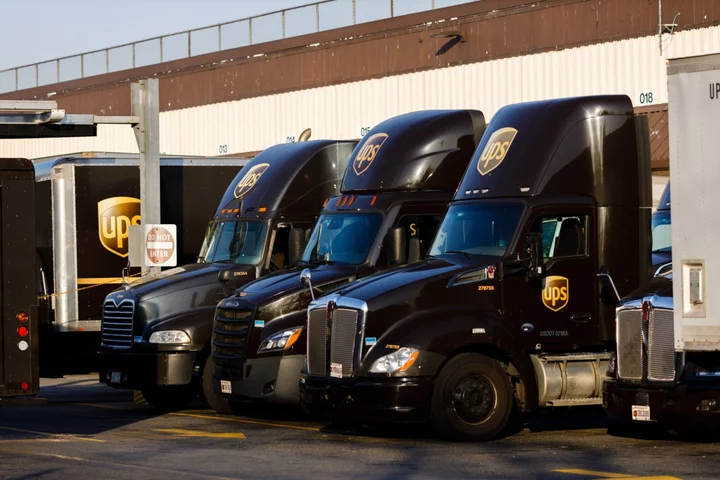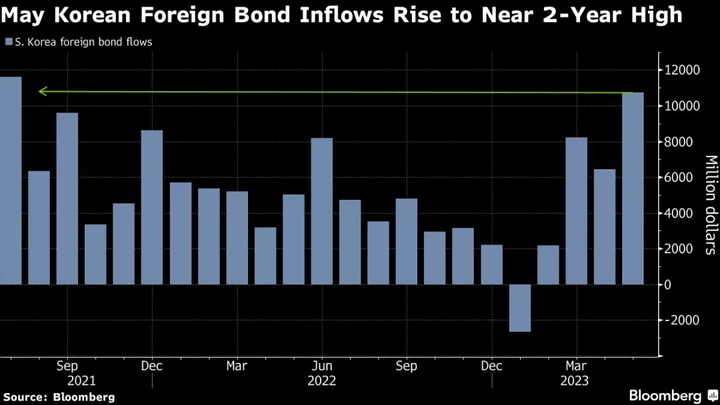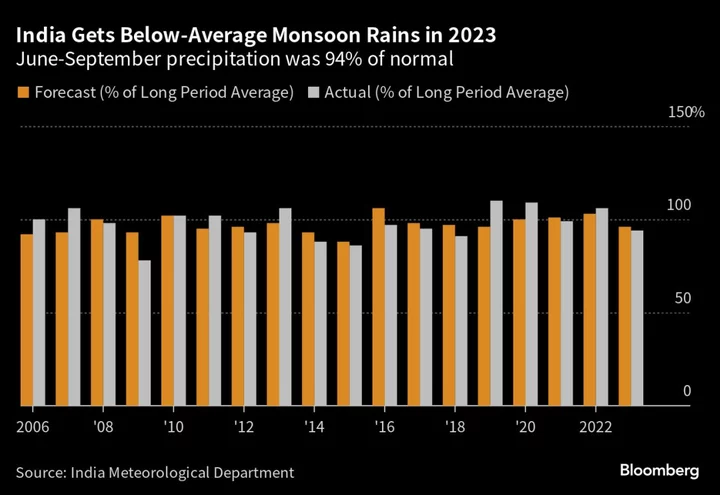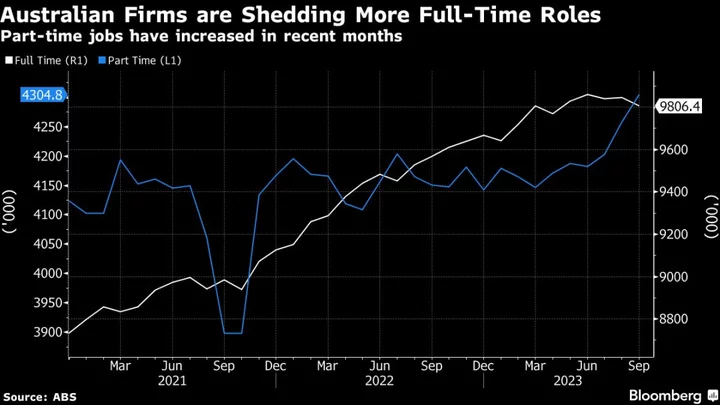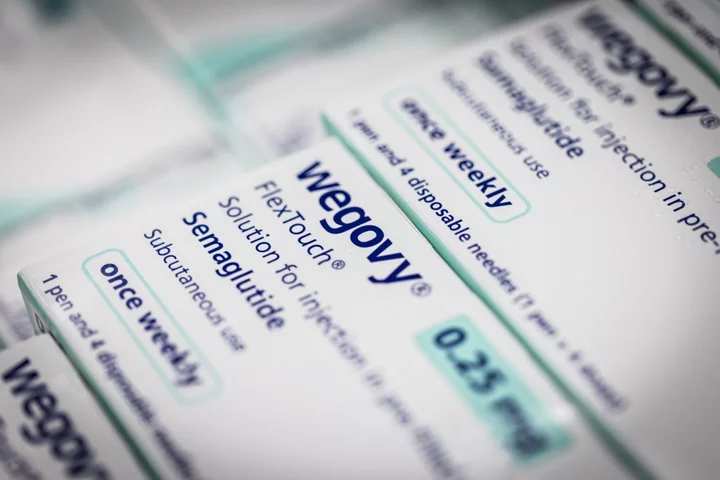Canada has finalized a deal to order as many as 16 military surveillance aircraft from Boeing Co. as part of a $7.7 billion investment, rejecting a homegrown rival proposed by private-jet manufacturer Bombardier Inc.
Prime Minister Justin Trudeau’s government confirmed the deal Thursday. Canada has entered into a “government-to-government” agreement with the US to acquire 14 Poseidon aircraft for the Royal Canadian Air Force, with options for an additional two.
The US State Department already approved the potential sale of the US Navy’s top sub-hunting aircraft, a modified Boeing 737 commercial jetliner called the P-8 Poseidon.
The contract includes as much as $5.9 billion for the planes, equipment, training devices and sustainment set-up. The rest of the money will cover funding for simulators, infrastructure and weapons, the Canadian government said in a news release.
“Canada requires a multi-mission fleet to contribute to the safety and security of Canadians and protect the sovereignty of a country with the longest coastline in the world,” Defense Minister Bill Blair said in the statement. “The Boeing P-8A Poseidon is the right aircraft to fulfill this role.”
The new jets will replace Canada’s aging fleet of Lockheed Martin Corp. CP-140 Aurora aircraft at a time when Russia and China are showing increased interest in the Arctic region. The US has been pushing its close ally to upgrade the technology it is contributing to the North American Aerospace Defense Command, especially after an alleged Chinese spy balloon traveled over both nations before being shot down in February.
Trudeau’s government had previously expressed a preference for the Boeing plane, which is already deployed by Germany, Norway, South Korea, Australia and New Zealand. The deal would be among the largest of its kind for the US planemaker.
The P-8 Poseidon faced a late challenge from Montreal-based Bombardier, with Chief Executive Officer Eric Martel calling for an open and “fair” procurement process as he tries to jump start a new defense business.
Martel touted over the past months a militarized version of Bombardier’s Global 6500 business jet as a “made-in-Canada solution” that would showcase Canada’s defense innovation. The firm partnered with General Dynamics Corp. in May to develop the aircraft’s military equipment.
However, the proposed model exists only on paper, a factor that adds to the risk of delays or other new-aircraft pitfalls on a project important to national security.
To sweeten the deal, Boeing will make targeted investments in Canadian industry to support the growth of the country’s aerospace and defense sector, the government said in the release. It said the investments have the potential to generate more than 3,000 jobs annually, benefit hundreds of Canadian companies and contribute at least $264 million annually to Canada’s gross domestic product over 10 years.
Boeing said in a release that it would establish an aerospace development center in Montreal that would host research and development focused on decarbonization, electrification, autonomy, digitalization and advanced materials. The government said the company has committed to invest at least C$5.4 billion ($4 billion) in Canada’s economy, but it may spend as much as C$10 billion.
Boeing will open a research and development center in Montreal and create partnerships with Canadian universities.
The first P8-A aircraft is expected to be delivered in 2026, with an average of one plane delivered per month the order is complete, as early as fall 2027. Full operational capability is expected by 2033.
The Aurora fleet was originally procured in 1980 and is scheduled to retire from service in 2030.
Canada’s La Presse reported earlier on the contract award.
--With assistance from Laura Dhillon Kane.
(Updates with details from government announcement.)

